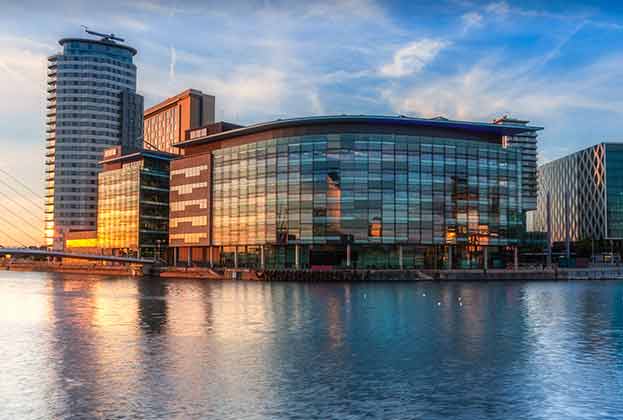From offices for companies to homes for workers to sets and studios, media interacts with property at every level
Studio costs and availability, prime office rents, and cost of living indicators all factor in to decisions about where media companies choose to locate both for production and office space.
Media industries interact with real estate across all aspects of their business. Film and music studios, sound stages, and office space for media headquarters all contribute to the property portfolios and interests of media companies.
The film industry is seeing a shift towards ownership of soundstages and production lots, rather than renting out space on an as-needed, short-term basis.
Historically, studios were rented for the duration of a project, but companies are increasingly shifting to a model where they have studios available for projects at all times. Netflix has signed a production deal with Shepperton Studios in the UK and purchased ABQ Studios in New Mexico in an effort to grow its production capability.
Other streaming giants are also looking to ink deals for studio space as they increase production. New studio space is hard to come by in Los Angeles, pushing many production companies to look elsewhere. Cities like London, New York, Atlanta, and Auckland are converting disused industrial warehouses and distribution facilities into studios to meet rising demand.
Office costs can be a determinant for whether a company chooses to locate within a city. Higher costs of living can also play a role in where workers choose to move for employment opportunities.
However, there is a balance to be struck as many of the most expensive cities offer a wealth of creative talent and opportunities for creativity and new ideas. Of our 20 cities, Tokyo has the most expensive office rents and Mumbai has the cheapest.
The need for collaboration
For writers, producers, and executives in media companies, collaboration in face-to-face environments will continue to be necessary. The boardroom, the writers’ room, and other office space are considered necessary to foster relationships and creativity.
In fact, a survey of over 1,500 office occupiers by FTI Consulting found that office working outperformed homeworking for employee creativity, innovation, productivity, and motivation. Creativity in the sector will be critical for launching new projects, particularly if the current situation persists.
The media industry is likely to continue to occupy prime office space, even in post-Covid environment, albeit the layout and number of days in the office may change.
Read the articles within Report: Media Cities below.
.jpg)




